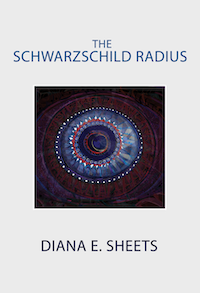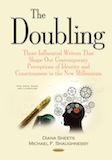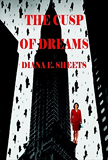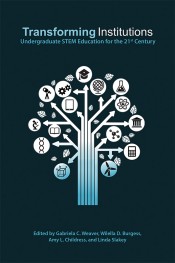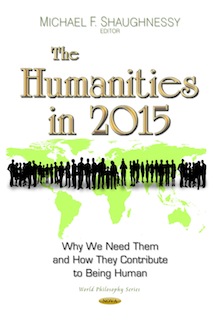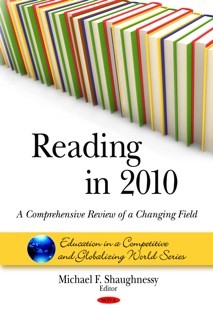V.S. Naipaul’s Perspective on the Irrelevancy of Fiction & Its Implications for the Rest of Us
Copyright © 2007 by Diana E. Sheets
In an interview with Rachel Donadio that appeared in the New York Times Book Review on August 7, 2005, V.S. Naipaul dismisses the role of fiction in illuminating our world and the intentions of the human characters who reside within it. “If you write a novel alone you sit and you weave a little narrative. And it’s O.K., but it’s of no account. If you’re a romantic writer, you write novels about men and women falling in love, etc., give a little narrative here and there. But again, it’s of no account.” (“The Irascible Prophet: V.S. Naipaul at Home”).
However, as Robert Boyers demonstrates in his critical study Atrocity and Amnesia: The Political Novel Since 1945 (Oxford University Press, 1985), Naipaul’s fiction can hardly be considered to contain narratives of “no account.” Boyers suggests that Naipaul’s fiction disturbs, offering no solace to readers who wish to retreat from political and social realities to seek refuge in sophisticated literary diversions.
They are difficult in the wrong way and for wrong reasons. Were Naipaul a more generous man, a man more sensible of our common need for positive recommendations and moderately consoling resolutions, his books would be easier to take. Were he more hopeful about the advantages available to some of the people in the world his characters inhabit, he would seem less single-minded, less bitter and alienating.
As a consequence, readers frequently regard Naipaul’s fiction as demanding, unpleasant, and illiberal. His assessment of human nature is sufficiently bleak that Boyers characterized Naipaul in 1985 as “our primary novelist of disorder and breakdown.” Contrast Naipaul’s perspective with that of other British writers, notably A.S. Byatt and Ian McEwan—the latter of whom has embraced a “transgendered perspective” with the publication of Atonement. Both authors craft novels of sensibility suffused with interiority glossed with feminized intellect. Emotion suffuses the narrative. By contrast, Naipaul’s uncompromising fiction dispassionately gazes out upon the desecrated landscape and the troubled state of humanity, offering minimal compassion and scant tenderness.
But not only does Naipaul fail to entice the reader hungering for literary sentiment, he also deliberately antagonizes and bates the academic left. Where once Oxford nurtured exalted thinkers, intellectuals Naipaul refers to as the “divines,” in recent years, he suggests, the “Very Wise People” in the ivory tower are destroying all that is culturally worthy. According to Naipaul, “Now, apart from sciences, there seems to be no purpose to a university education. The Socialists want to send everybody to these places. I feel that these places ought to be wrapped up and people should buy their qualifications at the Post Office.” (2006 interview with Farrukh Dhondy that appeared in the Literary Review).
And, actually, Naipaul isn’t far from the mark. The academic left these days is rarely academic or left. Rather, it is a gaggle of believers donning the vestments of postmodern (Liberal) sensibility—expressions of false piety and shared governance dedicated to undermining “elite” cultural history in favor of the pursuit of social justice and an impassioned advocacy on behalf of the disenfranchised and victimized populace. The believers, estrogenized to the last man, woman, and child, waddle forth proudly espousing their moral catechism. And should they, on occasion, quack eloquent, what resonates are intricate word puzzles—literary high jinks and dazzling labyrinths lit with virtuosic flare, talents, if truth be known, more likely glimpsed these days south of our border than any place else on the planet.
But let us return to Boyers. If, as he notes, Naipaul’s characters are engaged in a “struggle against things as they are without imagining that they will effect a general or enduring improvement. . . .,” the reader, hungry for literary sensibility that promises romance and at least the prospect of a happy ending, migrates from Naipaul’s brooding fictions to the effervescence of possibilities embodied in The Audacity of Hope.
Recently, Cynthia Ozick, in the April issue of Harper’s Magazine, argues for the primacy of literary criticism in reviving the fallen stature of fiction. Despite the force of her argument—and Ozick never fails to entice with her vibrant prose—it is the quote from Naipaul that she excerpts from the interview with Farrukh Dhondy that resonates. Once again, Naipaul makes the argument that fiction must gaze outward upon the landscape of quotidian existence rather than inward, applying the solipsistic navel-gazing techniques that presently dominate literary fiction. One might quibble with Naipaul’s target—Henry James—without impugning the righteousness of his argument.
The worst writer in the world actually [Henry James]. He never went out in the world….He never risked anything….He never thought he should mingle in the crowd and find out what they were there for, or how they behaved. He did it all from the top of a carriage or the top of a coach. A lot of his writing is like that. And he exalts his material because he thinks that this subject matter he alighted on—the grandeur of Europe and the grandeur of American new money—is unbeatable.
With Naipaul as our guide, let us embrace fiction that dares to engage with the world, despite the prevalence of dark subject matter and potentially bleak outcomes. This shall be our starting point in exploring the Literary Gulag. Reader beware: truths are hard to come by and the publishing conglomerates are hostile to the advocacy of path-breaking fiction. Not convinced? Glance around. Look carefully at the quality of stories published. What, if anything, do these novels actually reveal about life as it is actually lived?
Dig a little deeper; look a little harder. Consider the magazines that once provided a forum for literature—The Atlantic Monthly, The Paris Review, Harper’s, Esquire, the New Yorker and so many others. They have scaled back their coverage of fiction. And what do they feature? Nonfiction and newsworthy assessments sprinkled with a smattering of literary palliatives. Other magazines, such as GQ, no longer even bother to publish fiction. And should you doubt Naipaul’s withering criticism of the status of fiction and academe’s contribution to its irrelevance, examine English departments at universities both here and abroad. Fiction has been displaced by film and graphic novels. Literary and film criticism, not fiction, dominates the academy. Memoir and nonfiction hold sway. The few novelists on these faculties generally have only a rudimentary knowledge of their literary heritage. What matters is that they are published, not the quality and import of their stories.
The sophisticated reader can’t help wondering: What purpose is fiction if it is entirely predictable in content and style, at best a divertimento, at worst formulaic prattle? What if literary fiction is not the apogee of storytelling, but just another genre with, as is the case with all the others, highly prescribed rules? And why, given the prevalence of interior thought in literary fiction, hasn’t the portrayal of consciousness altered to reflect the recent advances achieved in neuroscience, except in the writings of Richard Powers? And why, oh why, if interior thought is so innovative has it become so derivative (Mrs. Dalloway…Mrs. Dalloway…Mrs. Dalloway…); or worse, a monologue of dyspeptic utterances that are best characterized as Little Me? And, most of all, what has caused the novel of ideas—steeped in contemporary historical and social detail—to be relegated to purgatory?
An impassioned reader seeks stories that are engaged with the world. She or he can’t help wondering what the consequences are when publishers promote only their established writers. And on those increasingly rare occasions that a new author’s novel is published and reviewed—but as these words are being written it should be noted that newspapers are increasingly eliminating all coverage on fiction and, indeed, book commentary as a whole—the reader can’t help asking, “Why isn’t it memorable?” Does it come as a surprise that this engaged reader is concerned because scandal and celebrity and memoir have replaced awe-inspiring novels, thereby depriving us of the profound truths that may only be gleamed from great works of the imagination?
With its financial forecasts candy coated with social virtue, the Literary Gulag has imprisoned us all. Fiction is dying, perhaps not in absolute numbers, but in its ability to tell meaningful stories. LiteraryGulag.com is about stripping away corrosive deceptions to reveal foundational truths. Our quest need not be pretty or hopeful or reassuring, but rather a clear-eyed assessment of what has been lost and what we might do to revitalize fiction. The essays posted on LiteraryGulag.com are about possibilities and opportunities and discovering freedoms where once it seemed that none could be found. The literary criticism and political commentary featured at LiteraryGulag.com break the bounds of confinement, both real and imagined. The place is here and the time is now.


